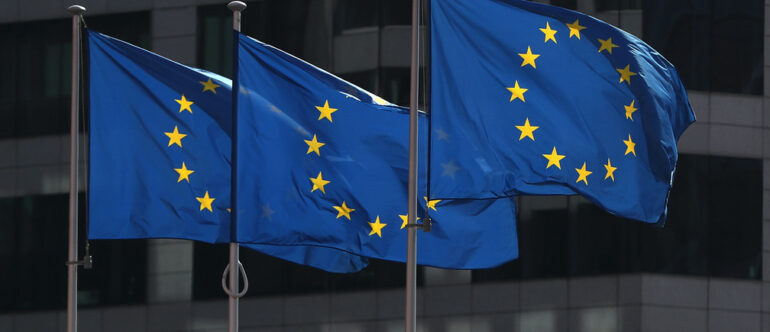Summary:
- 27 member states in the EU’s council wholly supported the bloc’s Markets in Crypto Assets regulation or MiCA during a vote on May 16.
- European Union ministers also backed new crypto tax laws mandating that operators disclose users’ holdings to relevant agencies as lawmakers hope to mitigate tax evasion.
- Today’s vote brings MiCA’s implementation one step closer, with the crypto policies expected to officially activate around mid-2024.
27 member states in the European Union’s council wholly supported the bloc’s Markets in Crypto Assets regulation or MiCA during a vote on May 16. The unanimous vote signals one of the final steps before MiCA passes into law and officially regulates crypto operators across Europe.
Today’s vote unsurprisingly passed after growing support for the bill among EU ministers and lawmakers alike. The bill had to garner support and pass official votes from two sides of the bloc – the EU’s council and parliament which already backed the bill during a vote in April.
Indeed, the bloc’s crypto rules won a 13-1 landslide after 517 EU policymakers voted “Yes” in favor of the watershed crypto rules.
The EU will now publish MiCA in its Official Journal following support from both parliamentary negotiators and EU council members. However, it will take 12-18 months for the policies to take full effect and begin standardizing the EU’s crypto market. Operators will be afforded this time to comply with the policies or risk being booted out of Europe.
Crypto Tax And AML Checks Agreed On After MiCA Vote
The bloc’s members also made headway on new crypto tax laws and anti-money laundering systems. Crypto operators will be required to disclose customer holdings to tax agencies and new AML measures were agreed on to “prevent the misuse of the crypto industry for the purposes of money laundering and financing of terrorism”.
Sweden’s Finance Minister stressed that regulating the crypto-assets sector is in the best interest of Europeans who invested in these assets and the operators who offer them.
Today’s vote means that the EU will become the first major jurisdiction in the world to implement crypto rules and install a standard licensing policy.

